We despise war and violence, says Iran’s president during Tajikistan visit
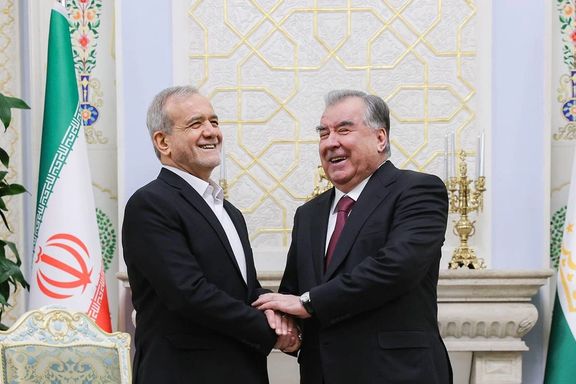
Iranian President Masoud Pezeshkian said Iran opposes war and violence during his visit to Tajikistan, his first international trip of 2025.

Iranian President Masoud Pezeshkian said Iran opposes war and violence during his visit to Tajikistan, his first international trip of 2025.
Speaking to students and faculty at Avicenna Tajik State Medical University on Thursday, Pezeshkian said, "We despise war and violence. From a medical perspective, anyone who engages in war likely has an issue in their brain; otherwise, humans would not fight one another."
Earlier this week, Pezeshkian told NBC News that Tehran is committed to peace and de-escalation, delivering a message likely aimed at the incoming US administration.
"The Islamic Republic of Iran is committed to peace and de-escalation in the region and globally. It condemns the Zionist regime's war-mongering, aggression, and genocide, and stands ready for honorable and equal negotiations," Pezeshkian said in an interview broadcast from Tehran on Wednesday.
Pezeshkian went on a two-day trip to Tajikistan, where Iran and Tajikistan signed 23 Memorandums of Understanding (MoUs) covering economic, political, cultural, educational, and trade cooperation.
The agreements, signed in the presence of Pezeshkian and Tajik President Emomali Rahmon, highlighted both countries' commitment to strengthening bilateral ties, according to Iranian local media.
While visiting Avicenna University, Pezeshkian, a heart surgeon by profession, was awarded a professorship and an honorary diploma in recognition of his contributions to healthcare and public service.
The please comes amid international sanctions against Iran for its ongoing nuclear program, support of Russia's invasion of Ukraine, and support of armed groups across the Middle East.
Tehran has also been sanctioned for its violent crackdown of protesters in 2022 which saw over 500 people killed by security forces following the death of Mahsa Amini in morality police custody for not wearing her hijab properly.
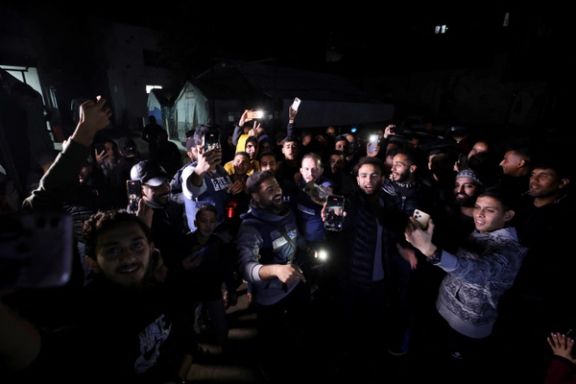
Iran's IRGC called the ceasefire between Israel and Iran-backed Hamas a "conquest" for the Palestinian resistance in a statement Thursday.
"Today marks the end of the war and the imposition of a ceasefire on Israel, a clear conquest and a great victory for Palestine, and an even greater defeat for the monstrous Zionist regime," the statement read as quoted by IRGC media Tasnim.
"It brings joy, vitality, and resilience to the people of Gaza as they return to their homes," the statement said, in spite of swathes of Gaza being turned to rubble since Israel's retaliatory offensive following the October 7, 2023, Hamas attacks.
A long-sought Gaza ceasefire-for-hostages deal emerged after an intense 96 hours of negotiations in Doha on Wednesday, brokered by US, Egyptian, and Qatari diplomats who persuaded Israel and Hamas to finally conclude the agreement.
The long-fought war has done nothing to secure more territory or freedoms for the people of Gaza, many of whom have no homes to return to and have suffered a humanitarian crisis.
Hamas, designated a terrorist group by countries such as the US and UK, has also been significantly weakened after the longest Gaza war since the group took control of the strip following a violent coup in 2007.
A senior Biden administration official credited the presence of President-elect Donald Trump's incoming Middle East envoy, Steve Witkoff, as being critical to reaching the agreement announced.
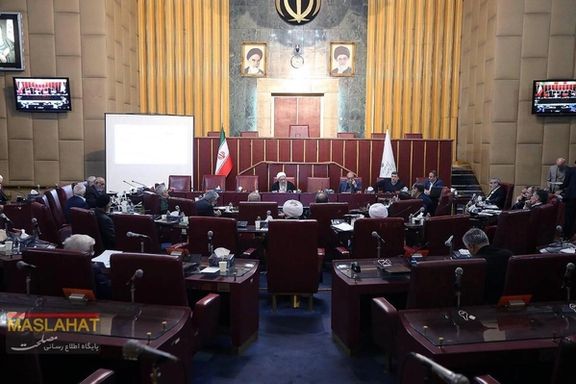
When a key advisory body in Iran started revisiting the contentious issue of acceding to international monetary conventions, it not only faced opposition from hardliners but also raised questions about whether the Supreme Leader has moderated his stance.
The Expediency Discernment Council (EDC), reportedly authorized by Ali Khamenei to undertake this review, was created to resolve disputes between the parliament and the Guardian Council, the body responsible for granting final approval to all legislation.
Economy Minister Naser Hemmati recently announced on social media that the Supreme Leader has approved a revisiting of Iran's accession to anti-money laundering and terrorism financing conventions.
Khamenei has not made any public statements on the matter so far.
The Financial Action Task Force (FATF) is an intergovernmental organization established to combat money laundering, terrorist financing, and other threats to the international financial system. Iran was first placed on its blacklist primarily due to its failure to meet international standards for combating money laundering and terrorist financing.
Many observers believe that the rapid deterioration of the Iranian economy, coupled with demands by the presidential administration and many politicians in Tehran, may have led Khamenei to give the green light for resolving the matter.
In an interview published by Euro News on Tuesday and widely covered by Iranian media, Asghar Fakhrieh-Kashan, former deputy of Iran's Central Bank, expressed that he had "the feeling" President Masoud Pezeshkian had reached an agreement with Khamenei to resolve the issue.
What role does the Expediency Discernment Council play in the debate?
One of the Council’s main mandates is to arbitrate between the Parliament and the constitutional watchdog, the Guardian Council, when a law is approved by the former but rejected by the latter and they cannot resolve the dispute.
The Council’s chair and members are appointed by Khamenei.
The current controversy centers on two pieces of legislation required by the FATF to remove Iran from its blacklist: the Palermo Convention on combating transnational organized crime and the CFT Act on combating the financing of terrorism.
Although Parliament approved these laws in 2018, the Guardian Council rejected them, citing conflicts with "resistance economy guidelines," national security policies, and "contradiction with the Sharia".
In November 2018, the matter was referred to the EDC, where it has remained stalled. This prolonged inaction could not have occurred without Khamenei's directive or consent.
Approval by two-thirds of the EDC's 43 current members is needed to finalize the two long-delayed pieces of legislation.
Who supports and opposes FATF-required accession?
Accession to the conventions has been a contentious issue in the Iranian political scene since 2016, largely due to the significant restrictions Iran faces on its relations with international banks and foreign trade as a result of being on the FATF blacklist.
Pezeshkian repeatedly called for accession to the FATF’s conventions during his campaign as a crucial move to prevent the country’s financial isolation. His government says a final resolution of the matter may be near.
The former nuclear negotiator, hardliner Saeed Jalili, who ran against Pezeshkian in the July snap presidential elections, is currently a member of the Expediency Discernment Council (EDC). He has the support of EDC members and some lawmakers in Parliament.
In a fiery anti-American speech recently, ultra-hardliner lawmaker Mehdi Koochakzadeh slammed the efforts to accede to anti-money laundering conventions under the Financial Action Task Force (FATF) as tantamount to “approving servitude to America.”
In a letter earlier this week to the Chairman of the Expediency Discernment Council (EDC), Sadegh Amoli-Larijani, 120 lawmakers argued that accession to the Palermo and CFT conventions would not benefit the Iranian nation. They contended that such a move would only “escalate the problems resulting from sanctions” and enable the US to uncover Iran's methods of circumventing them.
Reports suggest that at least half the members of EDC have a history of opposing not only these laws but Iran's accession to all conventions demanded by FATF.
However, as in many other cases, a subtle indication through unofficial channels from Khamenei may turn some of them.
Why is a decision on FATF legislation important?
The FATF recommends "enhanced due diligence" for transactions involving blacklisted countries. This makes financial dealings with Iran costly, risky, and time-consuming for international institutions. Countries may also apply countermeasures, such as terminating banking relationships, prohibiting transactions, or imposing additional audit requirements.
Resolving FATF-related issues would reduce these barriers, potentially facilitating greater access to international financial markets and alleviating economic pressure on Iran.
What steps has Iran taken to meet FATF’s requirements?
In 2016, under President Hassan Rouhani, Iran agreed to an FATF action plan to move from the blacklist to the gray list.
By 2020, however, the FATF reinstated Iran on its blacklist due to its failure to complete the action plan.
The global anti-money laundering task force, therefore, urged its members to continue to advise their financial institutions to apply enhanced due diligence to business relationships and transactions with natural and legal persons from Iran.
37 of the 41 recommendations to the Iranian government that the FATF made in 2016, including a cash declaration regime, were accepted by Iran and relevant legislation was introduced in these areas. But the counter-terrorism financing remains the toughest hurdle in Iran as hardliners argue that it would restrict Iran’s ability to assist their proxy groups abroad.
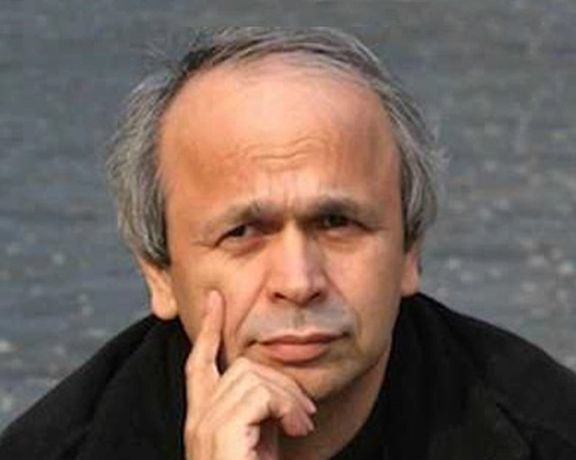
Prominent Iranian satirist and author Ebrahim Nabavi died by suicide in Maryland on Tuesday night, his family said in a statement to Iran International.
"Our father took his own life last night in Silver Spring, Maryland. Over the past decade, our father was suffering from depression and missed Iran, and the impossibility of living in his homeland weighed heavily on him," the statement said on Wednesday.
"He passed away without ever being able to come to terms with his forced exile away from Iran," the family added in the statement.
Born on November 13, 1958, Nabavi was a prominent stand-up comedian and satirist who left Iran for France on April 9, 2003, after serving multiple prison terms due to his activism and criticism of the Islamic Republic.
During his more than two decades in exile, Nabavi worked with several news websites and TV channels, including Voice of America, Zamaneh Radio, Rooz Online, and Gooya.
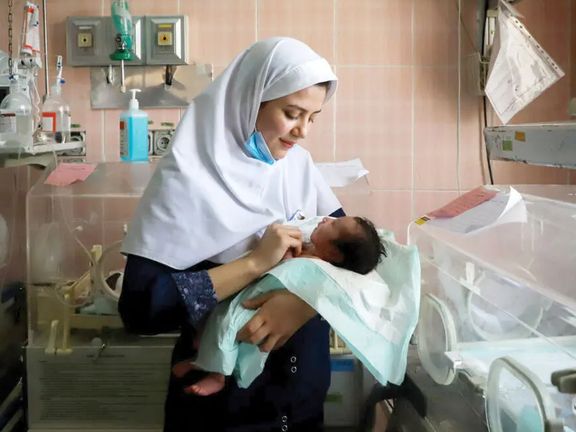
A widespread network of brokers online are working to facilitate a trade in eggs, sperm, embryos and surrogate wombs, Iranian newspaper Ham-Mihan reported in an investigation.
The report on Wednesday details how the transactions are advertised using coded language such as "work from home" on platforms like Divar - a popular Iranian online classifieds site - Instagram and Telegram.
Iran's lack of a clear legal framework governing the donation of reproductive cells and embryos has allowed the brokers to flourish, with some even collaborating directly with doctors.
The advertisements primarily target young adults aged 18 to 31, with varying prices, Ham-Mihan added. Surrogacy typically costs between 3 and 4 billion rials (approximately $3,750 to $5,000), plus an additional 90 million rials (less than $110) paid monthly to the surrogate until delivery.
In May, Tejarat News, another Iranian news outlet, reported a wider range for surrogacy costs, from 4 to 9 billion rials (roughly $5,000 to $11,000). Citing a gynecologist and a maternity ward nurse, it reported that individuals born in the 1990s are the most common surrogates.
Ham-Mihan reported that sellers are required to provide a physician-certified ultrasound confirming the size and reserve of each ovary, along with a certified copy of their national identity card obtained through a designated notary public.
For married donors written spousal consent is mandatory, while unmarried donors must provide a divorce or death certificate. A psychiatric evaluation is also required for all donors.
Zahra Ahmadi, director of social work at the Royan Infertility Treatment Center, a leading facility in Iran, told Ham-Mihan that brokers and intermediaries profit from the unregulated market.
She emphasized that donors can bypass these intermediaries by contacting the Royan Center directly for anonymous donations, dealing directly with the center rather than individual recipients. Ahmadi added that direct egg donors at Royan receive 160 million rials (about $200) per donation under a formal contract.
The report by Ham-Mihan also connects this trade to a broader trend of organ selling in Iran, which has sharply increased in recent years, even involving buyers in neighboring countries.
In June 2023, Hossein Biglari, head of the Kermanshah Kidney Patients Support Association, reported that kidneys were being sold in the province for negotiated prices between 2.5 billion rials (approximately $3,000 at current exchange rates).
Iranian media reports over the past two years have documented the growing prevalence of advertisements for liver, bone marrow, and cornea transplants, as well as sperm and egg donations appearing publicly alongside the sale of kidneys. Some advertisements even offer hearts for sale.
In May 2023, the Jahan-e-Sanat daily reported that some brokers facilitate the sale of organs in neighboring countries like the United Arab Emirates, Turkey and Iraq, fetching prices between of up to $15,000 for sellers.
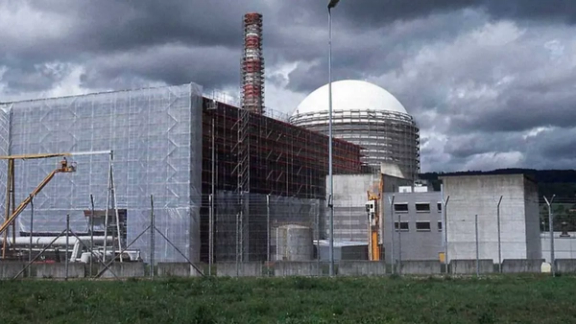
Decisions concerning Iran's nuclear doctrine are made exclusively by the nation’s highest authorities, the head of the Atomic Energy Organization of Iran (AEOI) said on Wednesday.
Iran's potential interest in nuclear weapons has come into focus days ahead of the return to the White House of Donald Trump, who has vowed to deny Tehran a bomb.
Responding to parliamentary discussions on nuclear weapons, Eslami said, "Parliament members express their own views, but decisions regarding the nuclear doctrine are made at the highest levels of the system and by the relevant authorities."
Eslami added that Iran’s nuclear program operates within its established framework, with the Atomic Energy Organization overseeing technical aspects and the Foreign Ministry handling diplomatic negotiations.
Despite Eslami’s assurance of continuity, calls for a more aggressive nuclear posture have grown among influential lawmakers.
Ahmad Bakhshayesh Ardestani, a member of the National Security and Foreign Policy Committee, proposed in November to escalate uranium enrichment and initiating nuclear weapon production in response to an International Atomic Energy Agency (IAEA) censure resolution.
“Under current circumstances, Iran should first move toward increasing uranium enrichment, potentially raising the enrichment level to 70% or 80%. In the second phase, Iran should pursue nuclear weapon production,” Ardestani told Didban News in November.
Iran is currently stockpiling 60-percent enriched uranium, which can be quickly refined to the 90% threshold required for nuclear weapons. Estimates suggest Iran could achieve this level within weeks, but producing an operational warhead involves additional technological and logistical challenges.
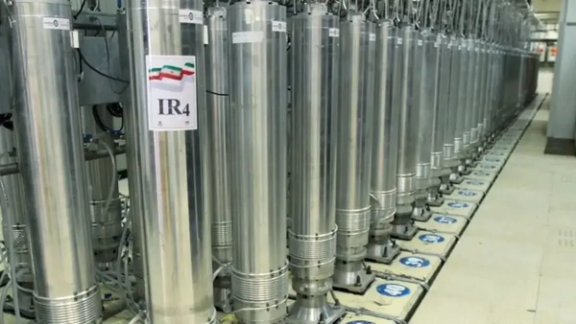
Former AEOI chief Fereydoun Abbasi also addressed the nuclear issue last week, saying that Iran has long surpassed the stage of constructing nuclear weapons.
“We can enrich uranium to any level we desire,” Abbasi said, advocating for stockpiling enriched uranium in secure locations to bolster deterrence. He justified this approach by citing perceived threats from nuclear-armed states, including the US and Israel.
Fatwa and international scrutiny
President Masoud Pezeshkian reaffirmed Iran’s adherence to a peaceful nuclear policy last week, citing Supreme Leader Ali Khamenei’s fatwa prohibiting nuclear weapons.
“The Islamic Republic has absolutely no intention of utilizing its nuclear capabilities for military purposes based on its ideological beliefs and a fatwa by Supreme Leader Ali Khamenei,” Pezeshkian said during a meeting with Britain’s ambassador to Tehran.
The fatwa has been a cornerstone of Iran’s nuclear doctrine for over two decades, though some experts note it could be revised. “The Leader’s opinion forbids this direction now, but opinions can change,” said nuclear engineer Mahmood-Reza Aghamiri.
A top foreign policy advisor to Khamenei said last year that Iran is capable of producing nuclear weapons and an existential threat could cause a rethink of the Supreme Leader's injunction against them.
"If the Islamic Republic of Iran faces an existential threat, we would have no choice but to adjust our military doctrine," former foreign minister Kamal Kharrazi said.
Meanwhile, concerns over Iran’s uranium enrichment activities have intensified. The International Atomic Energy Agency recently reported that Tehran is approaching weapons-grade enrichment levels, prompting European nations to question the absence of a credible civilian justification for its stockpiles.
Amid escalating domestic debates and mounting international scrutiny, Iran’s nuclear doctrine remains at a crossroads, with high-level decisions poised to determine its future trajectory and global implications.